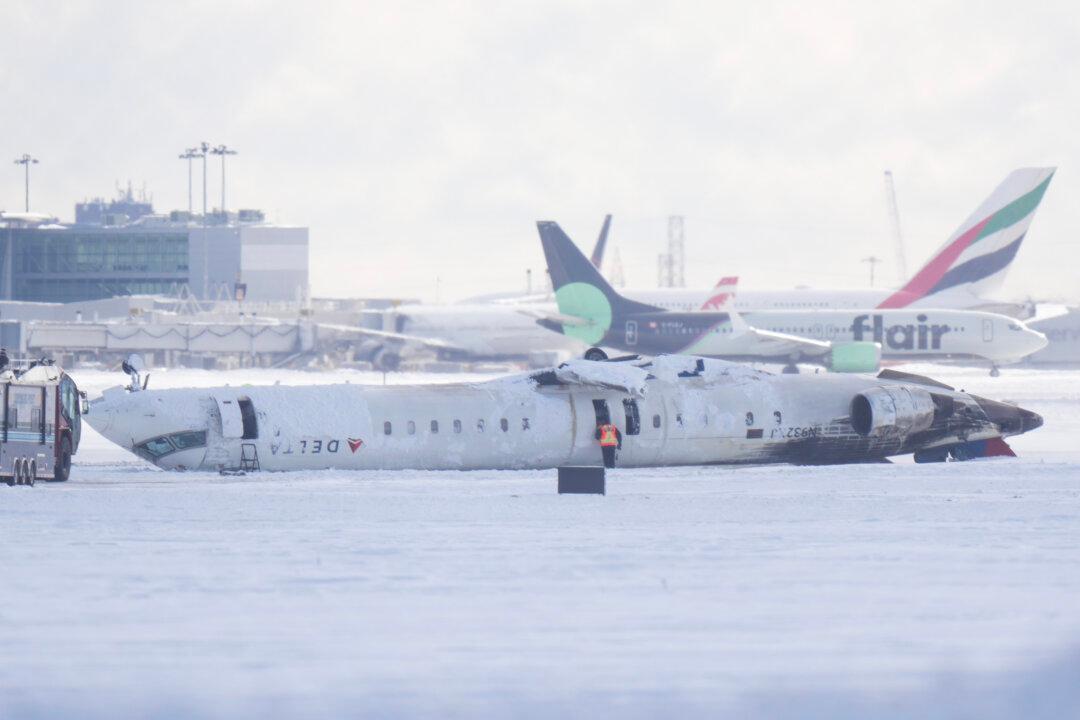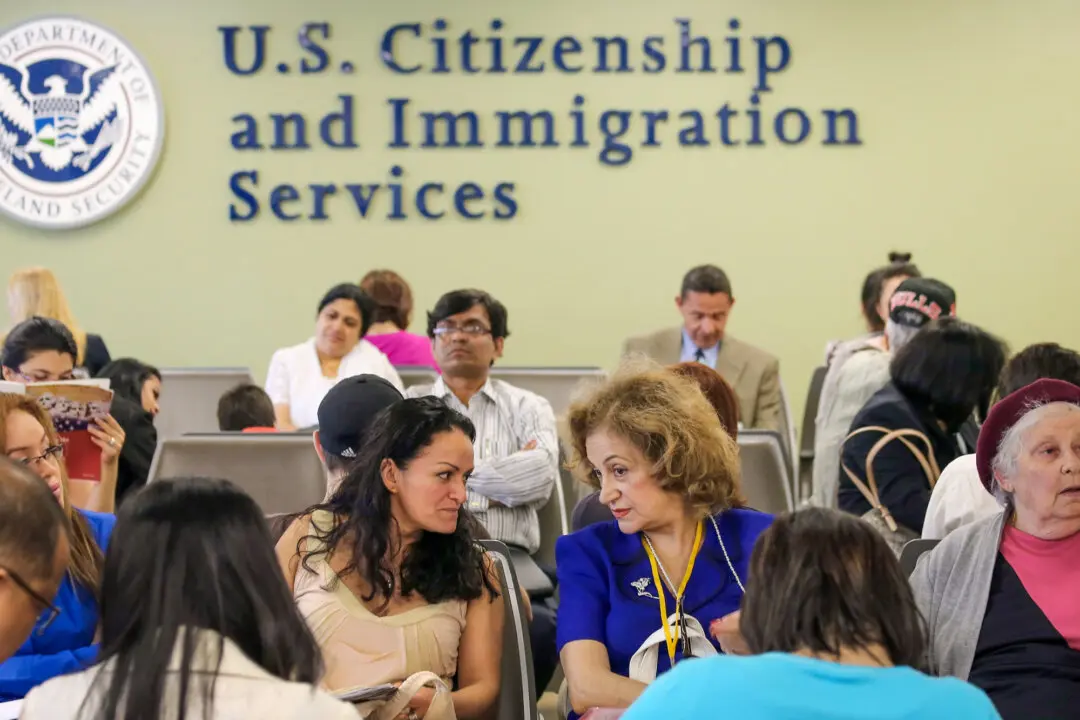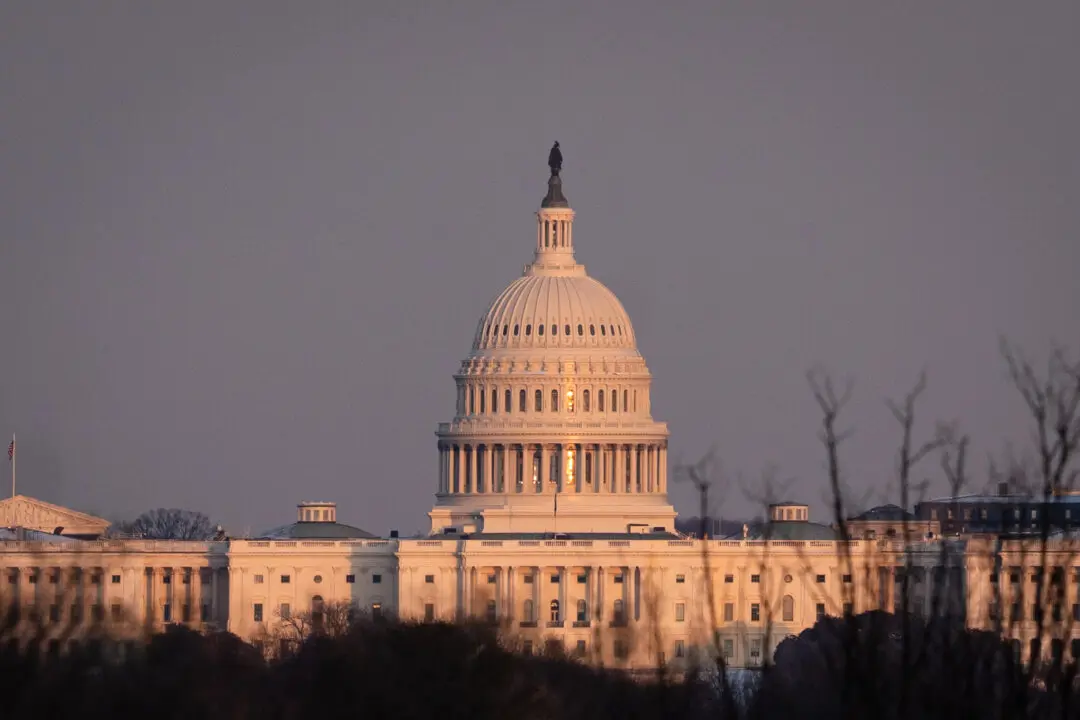Delta Air Lines is offering US$30,000 to each of the 76 passengers aboard the plane that flipped upside down while landing at the Toronto Pearson International Airport on Feb. 17.
Those hurt in the crash sustained non-critical injuries, according to the airport’s chief executive.





